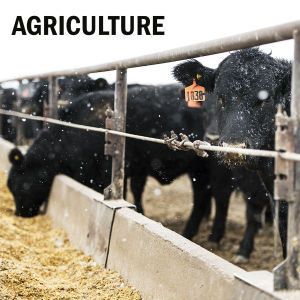Lincoln Journal Star: Beef checkoff fissure widens
Beef checkoff fissure widens
August 20, 2014
BY NICHOLAS BERGIN / LINCOLN JOURNAL STAR
A three-year undertaking to create an industrywide consensus on recommendations for overhauling the nation’s beef checkoff program could be in dire straits.
The Beef Checkoff Enhancement Working Group, which consists of 11 national industry groups, recently produced a draft memorandum of understanding that has drawn scathing criticism, including from some of its own members.
The National Farmers Union Legislative Committee on Monday said the work group is unlikely to produce needed reform and recommended the Farmers Union withdraw its participation.
“It is time for the U.S. Department of Agriculture to act on producer demands to reform this system,” Farmers Union Senior Vice President Chandler Goule said in an interview Tuesday. “It is our recommendation the USDA consider rewriting the beef checkoff program under the 1996 Generic Research and Promotion Act.”
The memorandum proposes raising the beef checkoff from $1 to at least $2 per head and revamping the national Beef Promotion Operational Committee, which approves projects and checkoff funding to promote beef.
The National Farmers Union will vote Sept. 6 on whether to withdraw its participation.
In response to the possible withdrawal by the Farmers Union, the National Cattlemen’s Beef Association, a member of the working group and the dominant beef checkoff program contractor, affirmed its commitment to making the checkoff efficient, effective and accountable.
“We remain committed to our state beef council partners, their involvement in the Federation of State Beef Councils division, and the structure that allows us to work together as a team,” National Cattlemen’s Beef Association President Bob McCan said.
The beef checkoff program was established by the 1985 Farm Bill and can only be changed by an act of Congress. Also, any proposed increases would have to be voted on by the producers who pay it. Congressional leaders on farm issues have told industry members it would be difficult to pass changes without broad consensus.
The industry-run work group, also known by the name Cross Industry Working Group, first met in Minneapolis on Sept. 27, 2011, at the request of Secretary of Agriculture Tom Vilsack, to increase producer support for the beef checkoff program, according to the USDA.
Goule said the work group at one point was close to a consensus, but one industry member stalled and the resulting memorandum does nothing to change the functionality of the checkoff, nor what many see as an almost monopolistic control by the National Cattlemen’s Beef Association.
Checkoff dollars are collected at the state level every time cattle are sold and the funds are split between the states and federal boards. In 2013, the federal half of the checkoff produced $39.6 million, of which $3.7 million came from Nebraska, according to the Cattlemen’s Beef Board.
In 2013, Nebraska was the second only to Texas, which sent $5 million to the national Cattlemen’s Beef Board. With the U.S. herd at its lowest level in 50 years, checkoff dollars have been declining and are likely to continue to go down as producers hold onto cows in an effort to breed more.
Nebraska state Sen. Al Davis, a rancher from Hyannis, has been appointed by Vilsack to the 103-member Beef Board. On Tuesday, he called the memorandum a step in the wrong direction.
Davis said no policy groups should have a connection to the committee awarding checkoff funds, and that concern isn’t addressed by the proposal.
The Independent Cattlemen of Nebraska, while not part of the work group, called for rejection of the proposed memorandum.
Independent Cattlemen President David Wright questioned the need for raising the checkoff and said the proposed changes to the Beef Promotion Operational Committee would not address the lack of diversity that has led to accusations of favoritism in awarding projects.
Montana-based R-CALF USA, which is not a member of the work group, called the memorandum “smoke and mirrors.”
R-CALF CEO Bill Bullard said he attended a few of the work group meetings when they first started but was excluded after making it clear R-CALF wouldn’t consider supporting an increase in the checkoff until its concerns about conflicts of interest within the program were resolved.
At a meeting in Denver earlier this month, the National Cattlemen’s Beef Association approved a motion for the work group to continue its efforts and bring back a memorandum of understanding to enhance the national beef checkoff.
National Cattlemen’s Beef Association Vice President Kendal Frazier declined to speculate on whether consensus is possible.
“It is a very diverse group of people,” Frazier said. "You have … dairy producers to meat importers. This would be a big change to a very important program in our industry, and it takes a lot of discussion and consensus building in order to get consensus."
Nebraska Cattlemen Association Executive Vice President Pete McClymont said state members support enhancing the checkoff if the 11-member work group can come to an agreement.
“It’s important to have stakeholders at the table and important for everyone to participate,” he said.
A recent study funded by the Cattlemen’s Beef Board and done by Harry Kaiser of Cornell University found that each dollar invested in the checkoff returns $11.20 to the industry.
Cattlemen’s Beef Board Communications Manager Diane Henderson said the National Cattlemen’s Beef Association does get the majority of checkoff-dollar-funded projects, but that is because it offers the most proposals.
Eight organizations have made proposals for the 2015 fiscal year. They have not yet been approved.

